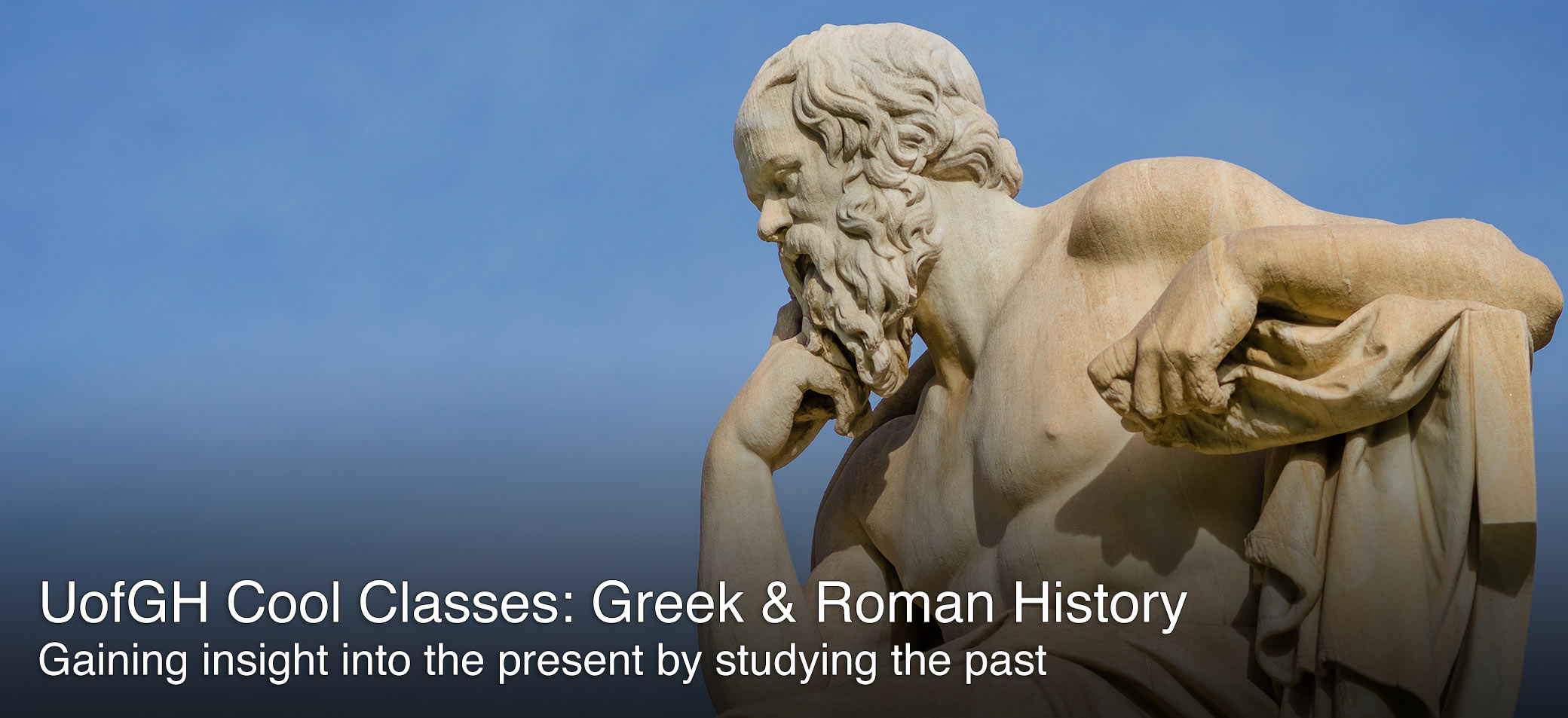- Future Students
- Current Students
- Faculty
- Staff
- Alumni
- Others
UofGH Cool Classes: Greek & Roman History
Why is the course interesting?
If you think this course is solely about ancient history, think again.
“Greek and Roman History” does thoroughly explore a fascinating and formative time in European history – but that is merely the beginning of the scope of this online course, explains Dr. John Walsh, a former instructor at the University of Guelph-Humber.
“I have a lifelong passionate interest in the ancient world, and I’m deeply fascinated by how it connects to the present,” Dr. Walsh said.
For instance, Dr. Walsh cites the example of the Greek historian and general Thucydides, whose landmark work History of the Peloponnesian War recounts the fifth-century BC war between Athens and Sparta.
“We might be surprised that it bears a very strong resemblance to one of the dominant geopolitical conflicts in the world today; that is, the tension between the United States and North Korea,” Dr. Walsh explained.
“In that way, ancient history always provides us with an incredible platform for perspective in looking at our own lives in a small scale, in terms of what it means to be a human being, but also on a grand scale – how civilizations form, develop, and eventually, collapse.”
What will you learn?
The Electives course begins around 1200 BC with the Trojan War and covers the major developments in Roman and Greek history right up until the end of the Roman Empire. In all, the course covers 1,600 years of history. However, “Greek and Roman History” goes far beyond simply teaching students the historical facts of a vast era.
Dr. Walsh’s course instead examines the various leadership styles that produced both great success and spectacular failures during that time. Along the way, students gain valuable insight into the approaches that worked effectively and those that produced calamitous results.
“The idea is to use ancient history as a way to bridge into a larger study of leadership and the qualities of leadership,” Dr. Walsh said.
What will you take away from the course?
Dr. Walsh hopes that the course helps students to improve critical analysis skills, develop self-awareness, and learn how to formulate fact-based, solidly reasoned arguments.
Further, he hopes that by studying the qualities of effective and ineffective leadership, his students will be inspired to develop that part of themselves.
“These are the kind of big skills that we like to develop in students as we educate the whole person at the University of Guelph-Humber,” Dr. Walsh said.
“That way, we can not only send people away with knowledge, but also the leadership skills to excel in the future and be important, contributing members to our society.”








